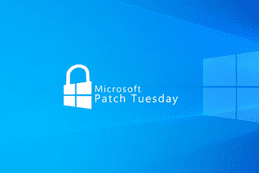.jpg?width=320&name=iStock-518729653%20(1).jpg)
This week, instead of reporting five incidents of the previous week, I’m just going to focus on one, the Equifax breach. With over half of the adult population in the US impacted, it is likely that you, or someone you know is affected.
Over the next two weeks I’ll provide an overview of steps we can all take to tighten up our own security, starting with preventing unauthorized use of our personal information. Most of these solutions are free or low cost.
We’ll start with the most important items first and things that would ideally be done this week. If you are unable to, or are reading this at a future point in time, the items are still relevant and can be done anytime.
There are four credit bureaus, three that report credit and assign a score – Experion, Equifax, Transunion, and one, Innovus, that just reports on credit. We’re going to work with all of them to make sure that you have full control over your credit.
1. Make sure you are on a secure network.
2. Virus/malware protection.
a. http://thewirecutter.com/blog/password-managers-are-for-everyone-including-you/
NIST (National Institute of Standards and Technology) recently released some updated guidance on ways to improve password strength and make them easy to remember, and your IT organization will be catching up soon….an emerging trend is to not change passwords as frequently, but to have more complex meaningful passwords. For example: If your dogs name is Jake a complex password becomes: Jakechewedtheremote,AGAIN! A 26 character password is extremely hard to guess but very easy for you to remember. If 26 is longer than allowed, then this password becomes J@kectrAGAiN1. This is a 13 character password with symbols and a number. Mathematically easier for a computer to guess but will still take a really long time and very easy for you to remember.
If you must have only one password, make it a difficult one for computers to brute force!
1. Freeze your credit report:
It sounds drastic but isn’t that bad. Unless you are in the process of applying for new credit, or going through a transaction that requires creditors to access your report in the near future, freezing your credit is the best option.
A credit freeze allows you to seal your credit reports and use a personal identification number (PIN) that only you know and can use to temporarily “thaw” your credit when legitimate applications for credit and services need to be processed. The added layer of security means that thieves can’t establish new credit in your name even if they are able to obtain your personal information. Fees vary by state: http://www.ncsl.org/research/financial-services-and-commerce/consumer-report-security-freeze-state-statutes.aspx
A freeze will not affect your credit score.
My personal experience with the four credit reporting bureaus:
- Transunion – Cost $5 – Somewhat easy, clean UI, easy to navigate. Creating an account is required (nice for quickly unfreezing later, a bit annoying now). Password limit is is 14 characters (not great). Was able to set a username/password for ease of use to unfreeze at a later date. Rating 3/5. https://freeze.transunion.com
3. Reset Passwords and Username (if able) on all financial websites.
Rather than using your name, nickname, or some combination of your name and birth year, try selecting a username that isn’t easily guessable. For example IUSM78YWH445 is a good username. When you use a password manager you are just going to be copying and pasting your username and password so choosing something random won’t make a difference.
4. Enable 2 factor authentication where possible
5. Request Free Credit Report - https://www.consumer.ftc.gov/articles/0155-free-credit-reports
Breakdown of what is included in TrustedID Premier:
- Credit Monitoring at all 3 bureaus. While credit monitoring can reveal fraudulent attempts at new credit being opened in your name, this doesn’t prevent new credit being opened.
- Equifax Credit report lock – That’s a good offering, but it doesn’t do anything for the other three reporting bureaus (Experian, Inovis, and Transunion). A credit lock can be obtained directly with each bureau for a nominal charge.
- Equifax Credit report – This is something you are entitled to receive once a year, for free, from each of the bureaus.
- Equifax credit freeze – Freezing credit reports at just one bureau won’t do much. In order to prevent new lines of credit being opened in your name a credit freeze needs to be put in place with all four credit reporting bureaus.
- Social Security Monitoring – apparently Equifax has a service that monitors “the dark web” for the sale of social security numbers. It makes no claims that the service will be able to search all sites for card numbers.
- $1M Identity Theft Insurance (under written by a 3rd party) – good luck getting a penny out of that.
It appears that many of the credit reporting bureaus are in the credit monitoring business and offer similar services and pricing to Equifax. Unfortunately, there are no services that can prevent your credit from being stolen.


